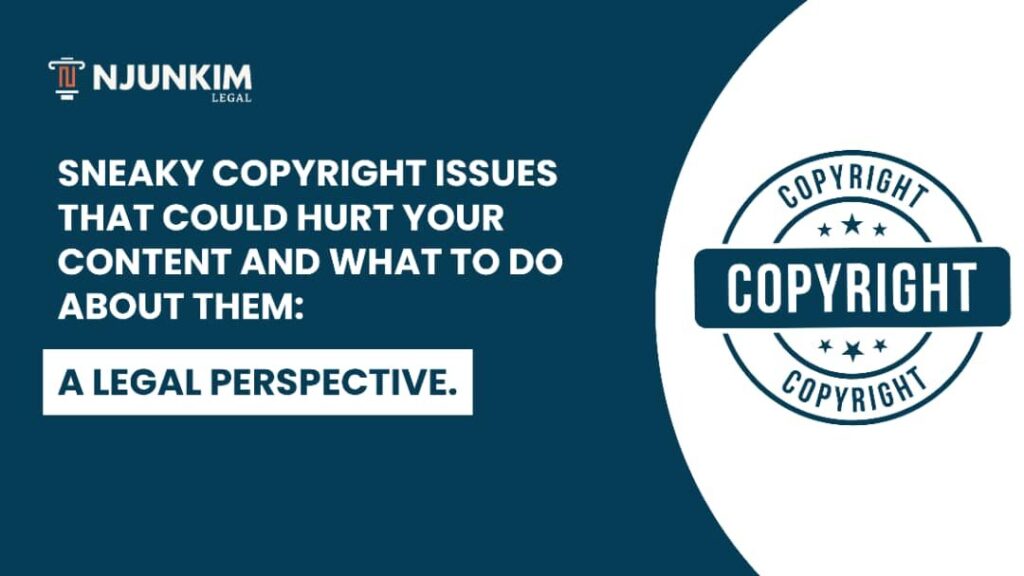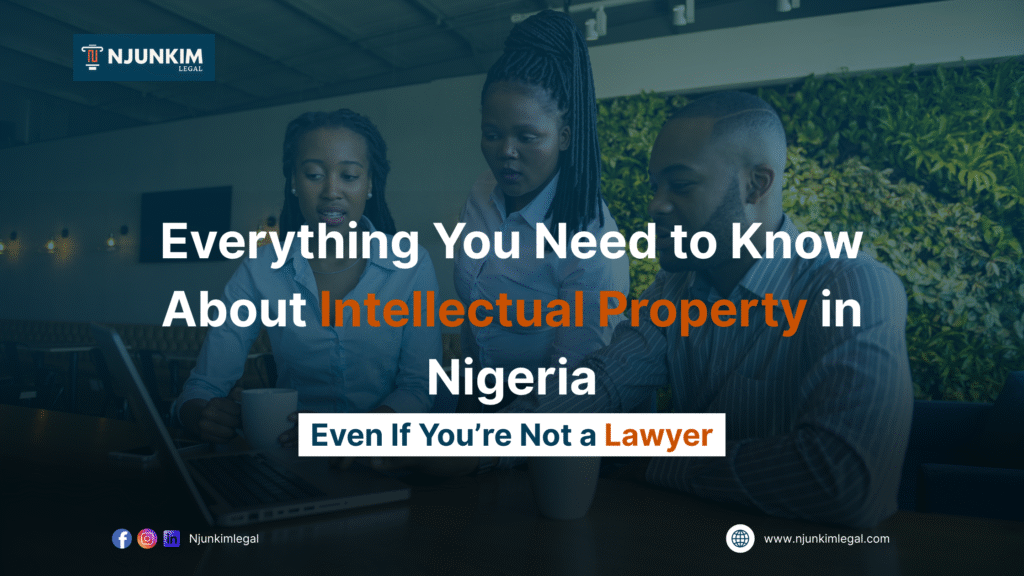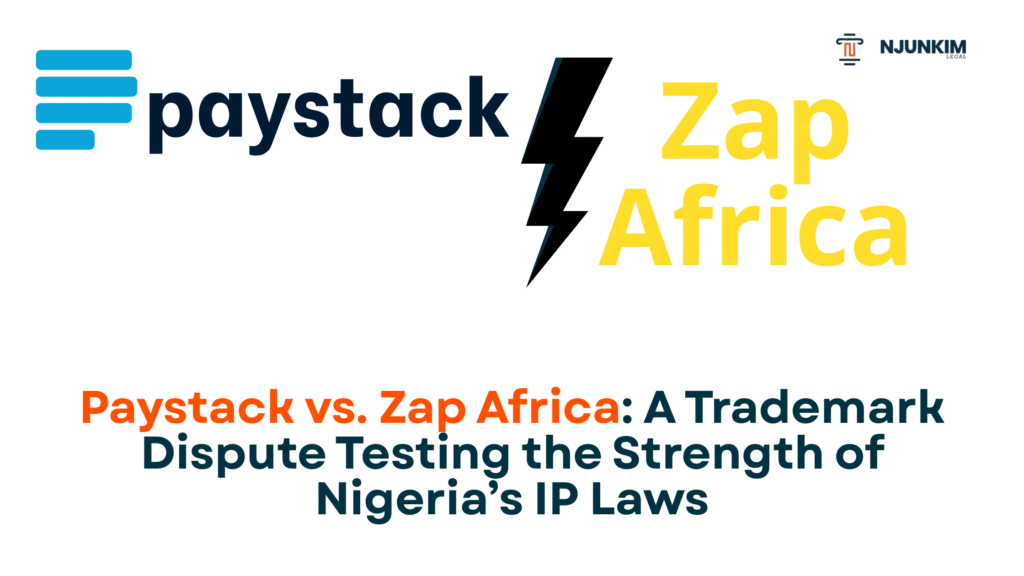You’ve probably heard the term “intellectual property” (IP), but what does it actually mean, and why should it matter to you and your business? Nigeria’s economy is increasingly becoming innovation-driven, with waves being made in the creative, tech, fashion, entertainment, and pharmaceutical industries. Entrepreneurs continuously create value through ideas, products, services, and brand identity. In their various ventures, intellectual property law is the bedrock in their corner that ensures their creations are fully protected. Intellectual property law matters to these groups for several reasons: Whether you’re a fashion designer, music artist, startup founder, content creator, or small business owner, protecting your ideas and brand is essential. In today’s fast-paced market, anyone can copy your work and profit from your creativity if you don’t take legal steps to protect it. This article breaks it all down in simple terms. No legal jargon, just straight talk on how to protect your hustle and turn your ideas into valuable assets. What Exactly Is Intellectual Property (IP)? Intellectual Property (IP) refers to original creations of the mind, such as logos, songs, designs, inventions, drawings and written works. These are intangible assets that hold value and can be legally protected and controlled, just like physical property. When you secure your IP rights, you gain the power to decide how your work is used, shared, or monetised. Simply put, IP is how the law helps you own and benefit from your ideas. In Nigeria, there are four main types of IP: Why Should You Care About Protecting Your IP? Protecting your intellectual property isn’t just a legal checkbox; it’s a strategic move. It shields you from exploitation, strengthens your business identity, and gives you tools to grow and profit from what you’ve built. You may not see it yet, but your intellectual property could be one of your most valuable business assets. Whether it’s your business name, logo, song, blog post, unique design, or even a mobile app, anything you create that distinguishes your brand holds potential value, but only if you protect it. Let’s break down why protecting your IP isn’t just for big corporations or global tech giants; it’s a smart move for anyone serious about building something that lasts. 1. Your Ideas Can Be Stolen (And Often Are) With the proliferation of the internet, your work can go from your screen to someone else’s Instagram store in seconds. A logo you spent months designing, a jingle you recorded, or even the name you built your brand on can easily be copied and used by someone else, especially if you haven’t legally secured it. And here’s where it gets worse: if they register it first, they can not only profit from your idea, but they can also stop you from using it. It happens more often than you think, especially in Nigeria’s informal business space, where many entrepreneurs don’t prioritise IP protection. 2. The Cost of Not Protecting Your IP Is Higher Than You Think When you do not secure your intellectual property rights, you may lose more than your idea: you could lose your reputation, customers, and even your business. Imagine building a brand over the years, only to receive a legal warning because someone else claims they own your name. The financial cost of rebranding, lost market trust, or legal battles far outweighs the cost of registration. What’s more painful than spending years building something, only to be forced to start over because of a preventable legal issue? 3. IP Is More Than Protection – It’s a Business Asset When properly secured, your intellectual property becomes something you can benefit from. You can license your music to films, lease your designs to other brands, or sell your software under contract. You can even use your trademark as collateral in business deals or raise investor confidence because your brand is legally protected. Think of IP like real estate. Just as you can lease or sell land you own, you can monetise your ideas if you legally own the rights. The more your brand grows, the more your IP is worth, and that value can open doors to partnerships, expansion, and long-term revenue streams. Who else should care about IP (but often don’t think they need to)? Trademark vs. Copyright vs. Patent: What’s the Difference? In conversations about intellectual property, it’s easy to mix up trademarks, copyrights, and patents, but each one protects a different type of creation. Understanding what they do, who they’re for, and how long they last can save you from costly mistakes and help you make the right legal moves for your business or creative work. Let’s break it down in simple terms: Trademarks: Protect Your Brand Identity A trademark protects identifiers of your brand, like your name, logo, slogan, product packaging, or even certain sounds or colours that distinguish your business from others. It’s how customers recognise and trust your business in the market. Who should care: Example:If you run a brand called ChopLife Foods with a unique logo and jingle, you can trademark those elements so no one else can use or mimic them for profit. Trademarks in Nigeria are valid for 7 years initially, and can be renewed every 14 years indefinitely. You can register your trademark at the Trademarks, Patents and Designs Registry, under the Federal Ministry of Industry, Trade and Investment. To learn more about trademarks, read our article on the Paystack/Zap Africa trademark dispute. Copyright: Protect Your Original Work Copyright protects creative and artistic works like songs, books, videos, blog posts, choreography, computer software, illustrations, and architectural designs. Once you create the work, you automatically own the copyright, but registering it gives you stronger legal proof of ownership. Who should care: Example:If you write a novel or design album art, copyright law ensures no one else can reproduce, sell, or modify it without your permission. Duration of protection:In Nigeria, copyright lasts for 70 years after the creator’s death for literary, musical, and artistic works, and 50 years from the date of publication for



